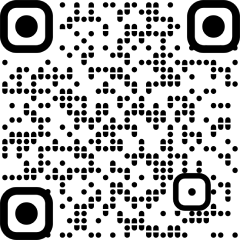
By Prathiba Raju and Abhijeet Singh
New Delhi: The debate on doctors should be kept out of the Consumer Protection Act has been on-going for quite sometime. The recent Superme Court comment to ‘reconsider’ its earlier judgement of 1995 which brought doctors under the ambit of Consumer Protection Act during a hearing of a similar matter on 14th May has brought this aspect again to the limelight.
While hearing a plea challenging the 2007 Supreme Court verdict that made lawyers liable under the Consumer Protection Act, the two-judge bench comprising Justice Bela M. Trivedi and Justice Pankaj Mithal commented that Court’s 1995 judgement which brought the medical profession within the ambit of Consumer Protection Act needs to be reconsidered as neither the ‘Profession’ could be treated as ‘business’ or ‘trade’ nor the services provided by the ‘Professionals’ could be treated at par with the services provided by the businessmen or the traders and advancing further the two judge bench referred the matter to CJI for its reconsideration.
Over the years, many industry professionals have criticised this measure as overly punitive and unjustified. They argue that medical professionals often operate in emergency situations, where there is a large room for results which may be unfavorable for patients and their loved ones which could lead to unnecessary lawsuits causing loss of time, money of professionals and even demoralises them by un-determining their efforts.
To provide a better understanding of the issue ETHealthWorld spoke to Dr R.V. Asokan, Indian Medical Association (IMA), President.
Responding to a query of whether the decision should be reconsidered or not Dr Asokan unequivocally called for its reconsideration and expressed, “Review and remediation is absolutely necessary.”
Justifying his stance he added, “The earlier judgment ought not to have been there. It was not envisaged in the law. Medical profession got included because of the judgment. It changed the nature of the doctor-patient relationship forever. The patient became a customer or client and the doctor became a service provider. It led to degeneration of a fiduciary relationship.”
Sharing some past experiences on how challenging it has been for medical professionals while adhering to the law Dr Asokan said, “The stress in the back of the mind and the fear it has created in dealing with the situations has been taken by the medical community at a great price.”
“I have been sued several times and have fought back at all levels even reaching the national forum. The time and energy spent on these litigations is enormous. Defensive medicine is the order of the day but it’s not only the doctor community, the patient care and safety has also suffered,” he added.
On being asked that should doctors be exempted from the CP Act on the similar lines as it has done for lawyers Dr Asokan voiced, “The doctor professions have a unique nature and conduct. They have a code of ethics and etiquette. When you tamper with its architecture the value loss is for the end user. Medical science is abstract and unpredictable. If lawyers with a black and white definitive written law can be exempted it is all the more fair that doctors are exempted. Moreover lawyers have all the time in the world at their command. Doctors are challenged with split second decisions with someone else’s life at the other end. It is not even comparable.”
Meanwhile on the same issue another body Association of Healthcare Providers (AHPI-India) through a formal communication urged the Health Ministry “to exclude medical professionals from the ambit of the Consumer Protection Act.”
Dr Girdhar Gyani, Directot General, AHPI, said, “The increasing number of cases filed against doctors post-2019 has led to a rise in treatment costs due to defensive medicine practices. AHPI believes that excluding doctors from the Consumer Protection Act would not only safeguard the interests of healthcare providers but also promote affordable healthcare for all citizens.
Understanding the legal aspect of the case ETHealthWorld reached out to Sanjay Pinto an advocate at the Madras High Court and National Consumer Dispute redressal Commission, Delhi.
Answering to the query of whether the earlier decision merits reconsideration, Pinto said, “Law is an evolving field. There was an expectation that the 2019 consumer statute would place doctors beyond the pale of consumer commissions. As the Supreme Court has now held that advocates cannot be brought under the Act, it is appropriate to re-examine its applicability to the medical profession as well.
Responding to the paramount question on whether doctors ought to be granted exemptions or not Pinto stated, “The medical fraternity is justified in seeking a re-look at the Dr Shantha case as consumer complaints are like a damocles sword over their heads and end up pushing up costs through ‘precautionary diagnostic tests’. Here too, the outcome of medical treatment or surgeries may also not be entirely in the hands of doctors. Consumer complaints, even if ultimately dismissed, may tarnish the reputation of doctors. To that extent, they have a reason to seek exemption.”
Elaborating on the difficulties encountered by the two parties in the legal process the advocate cited his past experience, ” One of the cases of medical negligence I handled, representing a hospital, went on for 11 years in the National Commission. It ended in dismissal but for all the parties involved, the prolonged stress can take a toll.
Commenting on the key provisions for the medical fraternity at the proceedings Pinto said, “The bone of contention would be the interpretation of the definition of ‘service’ under Section 2(42) of the Consumer Protection Act, 2019. Further, whether the term ‘contract of personal service’ that is excluded from its purview, which legal services were held to fall under, will apply to medical care and treatment. The context of corporate hospitals and medical insurance may also be relevant factors.”






